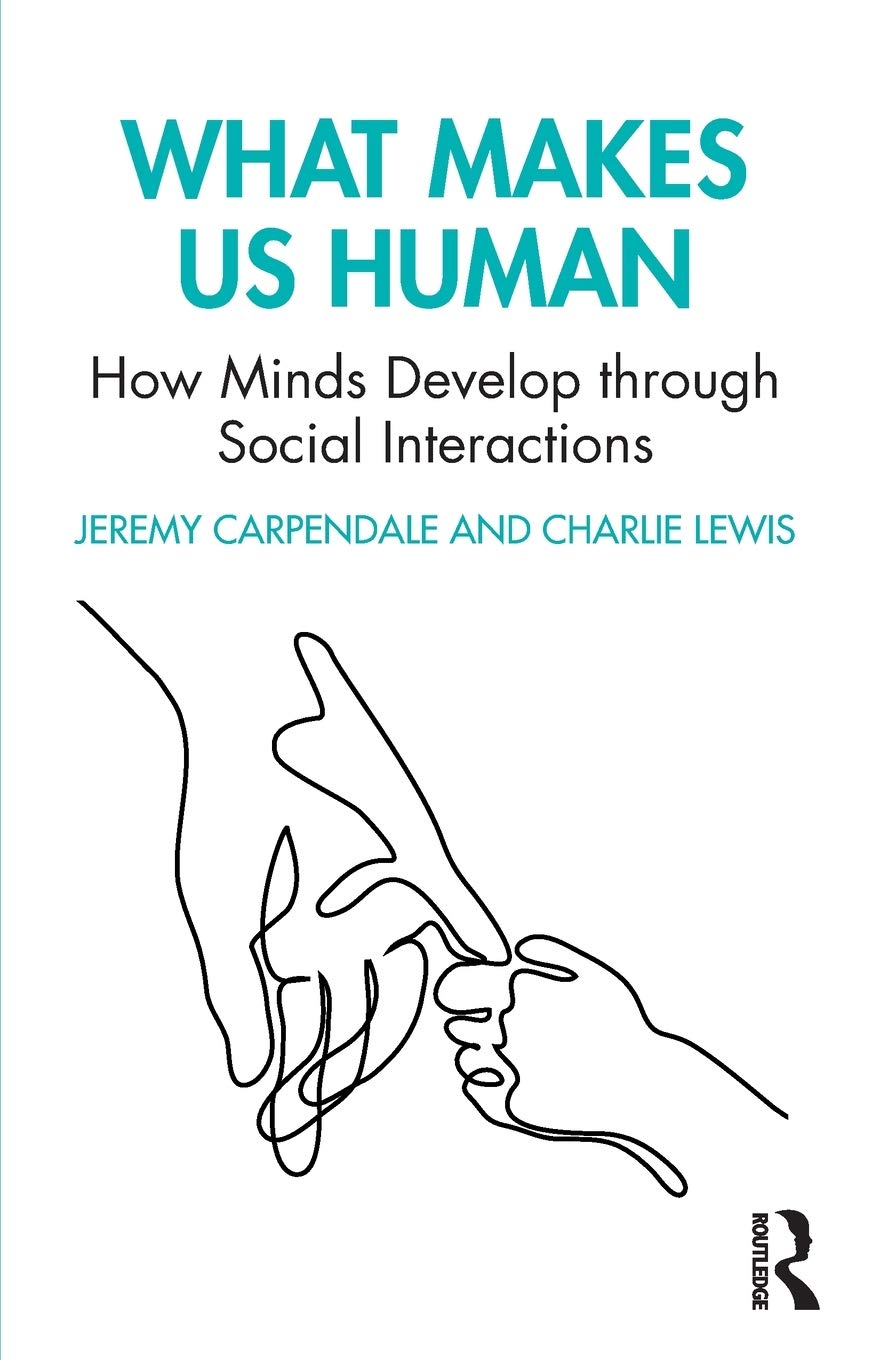
How do you go from a bunch of cells to something that can think? This question, asked by the 9-year-old son of one of the authors, speaks to a puzzle that lies at the heart of this book.
How are we as humans able to explore such questions about our own origins, the workings of our mind, and more? In this fascinating volume, developmental psychologists Jeremy Carpendale and Charlie Lewis delve into how such human capacities for reflection and self-awareness pinpoint a crucial facet of human intelligence that sets us apart from closely related species and artificial intelligence.
Richly illustrated with examples, including questions and anecdotes from their own children, they bring theories and research on children’s development alive.
The accessible prose shepherds readers through scientific and philosophical debates, translating complex theories and concepts for psychologists and non-psychologists alike.
What Makes Us Human is a compelling introduction to current debates about the processes through which minds are constructed within relationships.
Challenging claims that aspects of thinking are inborn, Jeremy Carpendale and Charlie Lewis provide a relationally grounded way of understanding human development by showing how the uniquely human capacities of language, thinking, and morality develop in children through social processes.
They explain the emergence of communication within the rich network of relationships in which babies develop.
Language is an extension of this earlier communication, gradually also becoming a tool for thinking that can be applied to understanding others and morality.
Learning more about the development of what is right in front of us, such as babies’ actions developing into communicative gestures, leads to both greater appreciation of the children in our lives and a grasp of what makes us human.
This book will be of interest to anyone curious about the nature of language, thinking, and morality, including students, parents, teachers, and professionals working with children.
Routledge este o companie de editură britanică specializată în cărți academice, reviste și resurse online.
Face parte din Taylor & Francis Group, care este una dintre cele mai mari companii de editare academică din lume.
Accentul lui Routledge este în primul rând pe științele umaniste și sociale.
Punctele cheie despre Routledge includ: 1.
Editura academică: Routledge este cunoscut pentru publicarea de cărți și reviste academice într-o gamă largă de discipline, inclusiv literatură, educație, filozofie, psihologie, sociologie și multe altele.
Cărți și reviste: Compania publică atât cărți, cât și reviste academice, contribuind la diseminarea cercetării și cunoștințelor în cadrul comunității academice.
Resurse online: Routledge oferă o varietate de resurse digitale, inclusiv cărți electronice, reviste online și alte materiale educaționale.
Aceste resurse sunt adesea accesibile studenților, cercetătorilor și instituțiilor prin intermediul platformelor online.
Grupul Taylor & Francis: Routledge face parte din Grupul Taylor & Francis, care cuprinde mai multe mărci comerciale și filiale.
Grupul Taylor & Francis este cunoscut pentru angajamentul său față de publicarea academică și științifică.
Acoperire internațională: Routledge are o acoperire globală, cu publicațiile sale distribuite și accesate de savanți, cercetători și studenți din întreaga lume.
Compania interacționează cu comunitățile academice din întreaga lume.